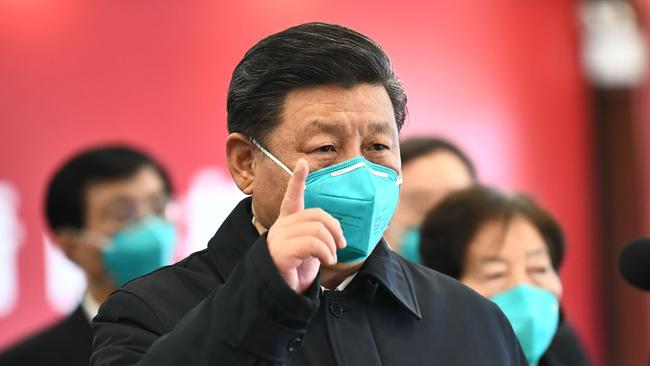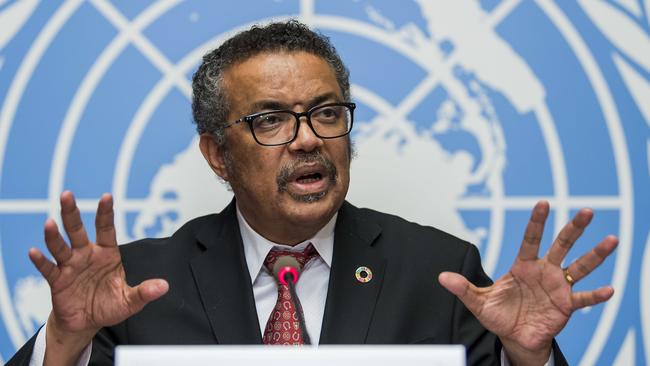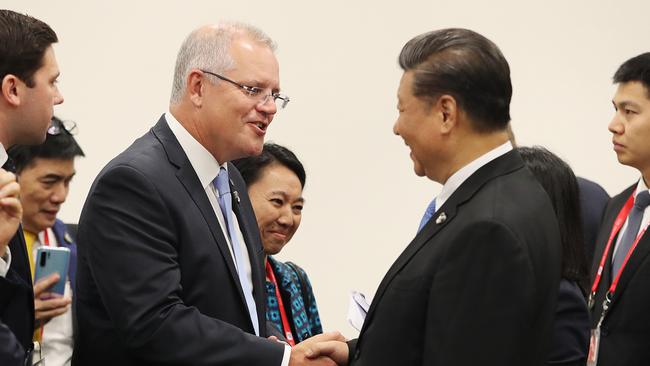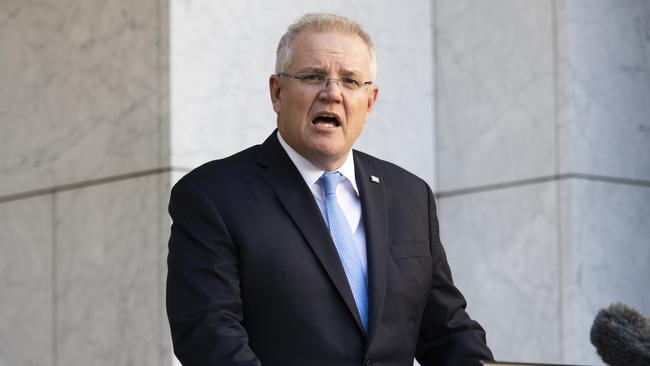How Australia can benefit from China’s COVID-19 narrative and growing trade stoush
As much as Xi Jinping might like to pick a fight with Australia, with countries around the world incensed by China’s COVID-19 behaviour, the costs may no longer be worth the benefits, writes James Morrow.
Rendezview
Don't miss out on the headlines from Rendezview. Followed categories will be added to My News.
China is panicking that its mishandling of the coronavirus is threatening its twin dreams of mass prosperity at home and dominating the world order abroad – and in doing so, has created an opportunity for Australia, the US, and other democracies to work together to enrich one another while reducing their economic dependence on the communist behemoth.
First, the panic.
Last Monday, a remarkable little article appeared in the English language version of the official Chinese Communist Party newspaper, People’s Daily.
Showing the typical communist flare for snappy headline writing, the piece – entitled “To defeat COVID-19 pandemic calls for joint efforts from global media” – called for the world’s media to help spread Chinese Communist Party propaganda and deflect blame from Beijing for allowing the coronavirus to get out of control and infect the world.
The coronavirus is a “big test for global media”, the piece by journalist He Yin said, and blamed “irresponsible media outlets” for “(undermining) international co-operation to fight the virus”.

Instead of pointing the finger at China and demanding answers for just how the virus was created, Yin wrote that “all responsible media in the world should conscientiously resist stigmatisation and stand by justice” and suggested that pinpointing the virus’s origin was a “racist act against a country and all its people”.
Just coincidentally, this mirrors language used by the embattled boss of the World Health Organisation, who earlier this year said the “stigma” around coronavirus was worse than the disease.
But what makes the document remarkable is not so much its weaponised wokeness as its call for media organisations to “give the message of … how counties fight together by looking (out) for and helping each other, and give the warm message of unity and strength”.
It was a small but further sign of just how desperate Beijing has become to control a narrative that has gotten out of its control almost as quickly as the coronavirus – and which now threatens to scupper Chinese dictator Xi Jinping’s “Chinese dream” of becoming a “moderately well-off society” by 2021, the 100th anniversary of the founding of the Chinese Communist Party.
This propaganda effort, which has included sending increasingly bellicose letters to this newspaper for our coverage of Beijing’s handling of the coronavirus, hasn’t worked that well so far in Australia.

Polling from the Lowy Institute released this week found that 68 per cent of Australians feel “less favourable to China’s system of government”.
Which is why it’s so remarkable that at the same time, Beijing appears to be trying to push the trade button to get its way.
In response to China’s move to cut off Australian barley and beef and potentially imports of other products including wine this week, the response across much of the country was to say, fine, half your luck.
An attempt by Anthony Albanese, who has been all but invisible during this crisis, to accuse Scott Morrison of mismanaging our relationship with China thus hurting farmers, was quickly attacked by the AWU, a number of Labor MPs, and Bill Shorten who said it was “right to stand up for Aussie jobs & sovereignty”.
It was the right response, and a welcome contrast to some business figures and lobbies who have seemed at times to push for conciliation at any price – including our sovereignty.
It was also a recognition that while China may be a bully, bullies tend to back down after a bit of challenge.

Because as much as Xi might like to pick a fight with Australia, with countries around the world likewise increasingly incensed by China’s behaviour, the costs might not be worth the benefits.
Which is where the opportunity comes in.
Australian food and other products are extremely popular with the rising Chinese middle classes, who not only covet products such as Ugg boots as status symbols, but also do not trust that local produce won’t be fake or contaminated. The same Chinese government that can assign every citizen a social credit score cannot ensure the food supply is uncontaminated.
Likewise, Australia supplies 60 per cent of China’s iron ore and 45 per cent of its natural gas, along with plenty of other raw materials like bauxite (which can be turned into aluminium) and copper.
Finding replacements for these commodities might not be as easy as Xi imagines.
Scott Morrison is right to take the tone he has thus far taken with China, and the Australian people for the moment seem to back him – even if it means even more economic pain in the short term.
But any trade showdown with China will require co-operation between like-minded countries – perhaps, as AWU national secretary Daniel Walton suggested earlier in the week, in the spirit of NATO.

During the Cold War with the Soviet Union, the US and western Europe agreed that an attack on any member of NATO, or the North Atlantic Treaty Organisation, would be treated as an attack on all of them. Led by then-president Harry Truman, the basis for it was known as the Truman Doctrine.
China clearly believes that if it can’t guilt Western nations into shutting up about coronavirus because it’s racist, it can use its purchasing power to get us to toe the line.
We’ve seen this tactic used time and again against governments as well as businesses – recall Beijing’s boycott of NBA teams last year after some players and fans spoke out against human rights abuses in Hong Kong.
If free trade is, as economists claim, a good thing, then surely that is only the case when it is between reasonably like-minded nations and with no political strings attached – who could also use their collective muscle to punish China if China attempted to punish one of their own.
The PM has a lot on his plate at the moment, but so do plenty of other countries dealing with similar issues with China and who are wondering how we’ll go.
The Morrison Doctrine does have a bit of a ring to it, doesn’t it?
James Morrow is the opinion editor for The Daily Telegraph.
Originally published as How Australia can benefit from China’s COVID-19 narrative and growing trade stoush

